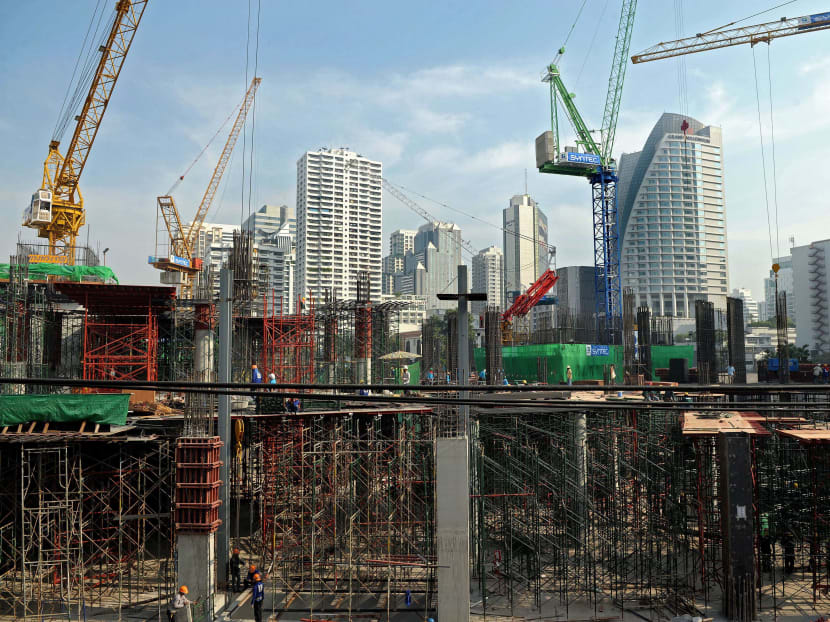Thailand wants the rich to not just buy homes, but invest in high-end and tech sectors
BANGKOK — Ms Kobkarn Wattanavrangkul, Thailand’s tourism and sports minister is on an economic mission – to draw high-net worth individuals to the country not only to holiday, but also to live, invest and for retirement.

Labourers work at the construction site of a high-rise building in Bangkok, Thailand. Thailand's tourism and sports minister is on an economic mission to draw high-net worth individuals to the country not only to holiday, but also to live, invest and for retirement. Photo: AFP
BANGKOK — Ms Kobkarn Wattanavrangkul, Thailand’s tourism and sports minister is on an economic mission – to draw high-net worth individuals to the country not only to holiday, but also to live, invest and for retirement.
The drive is underscored by the Authority of Tourism’s series of large-scale international events to boost the tourist dollar and its special visa scheme to allow foreigners to stay in the country for up to 20 years.
“Many foreigners already bought condominium units in Thailand. Bangkok is a popular location among them, and I have heard that foreign buyers are spreading to other provinces such as Chiang Mai, Phuket and Pattaya area,” Ms Kobkarn said.
To capture more wealthy global citizens to live in Thailand, she said the country had made an aggressive push on extending its visa schemes, including allowing foreigners to live in the country for up to 20 years.
Since 2003, 4,800 special visas have been issued under its exclusive residence visa programme, Thailand Elite, which gives foreigners the right to live in the country for five to 20 years with a one-off fee of 500,000 Thai baht (S$20,670) to 2.14 million Thai baht. Out of the 4,800 “elite” visas, 1,200 were signed up this year.
The fee covers a concierge programme entitling members to VIP access to government agencies dealing with immigration, driving licences and work permits. Visa holders are also entitled to 24 golf and spa sessions a year and one annual health check at a local private hospital.
The increase in “elite” visas issued has coincided with rising tourist arrivals and spending in the country.
"We aim to draw 34 million tourist arrivals in 2017,” said Ms Kobkarn, who is the former chairperson of Toshiba Thailand.
In 2016, the number of tourist arrivals was 32.52 million, of which 8.7 million, or around 27 per cent, were from mainland China, which has become Thailand’s largest source of international tourists, according to the tourism authority. For the first eight months this year, there were 552,190 visitors from Hong Kong, which is the fourth largest market, up 4 per cent from the same period in 2016.
While foreign investors have traditionally focused on investing in condominiums in the Thai property market, Ms Kobkarn said the scope should be expanded.
“It is time to look at investment in Thailand again. We are aiming to lure more investment in high-tech and high-end industries,” she observed.
Mr Dominic Volek, managing partner of Henley and Partners, said that about 20 to 30 per cent of the successful applicants for the “elite” visas would buy properties, while the rest would lease flats.
Mr Volek’s firm was awarded the global concession in March to promote the “elite” visa issued by Thailand Privilege Card Company, a wholly-owned subsidiary of the tourism authority.
“The visa scheme attracts both visitors and investors,” he said.
Of the total visas issued since 2003, 22 per cent of the visa holders were from mainland China, 17 per cent from the UK, 12 per cent from the US and the rest from Japan and France, Volek said.
“Most of these visa holders are foreigners who made Thailand their second home for retirement, and (those who are] frequent travellers and pure golfers,” he said. SOUTH CHINA MORNING POST






